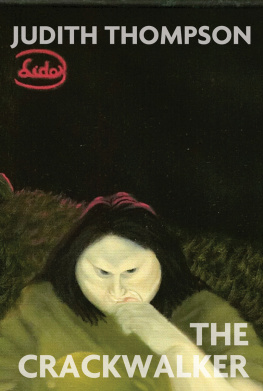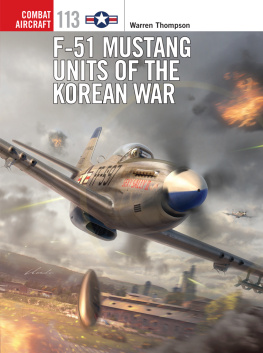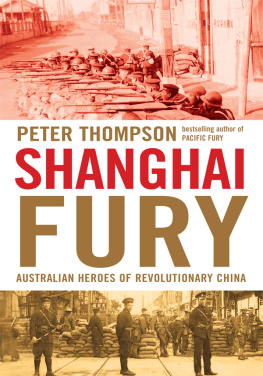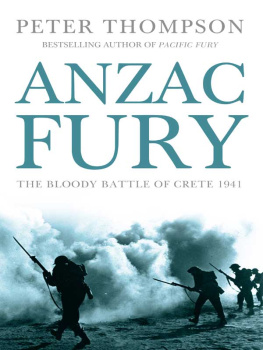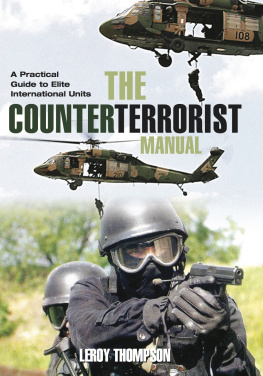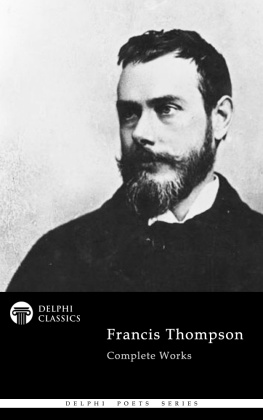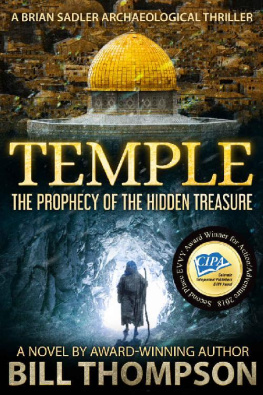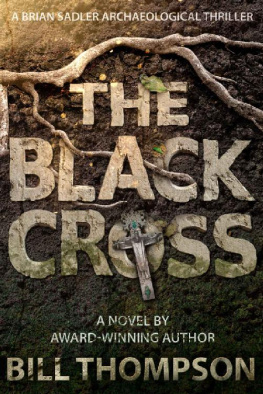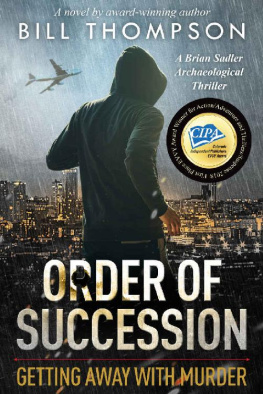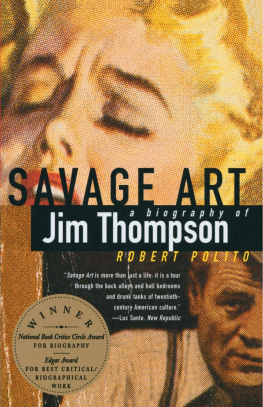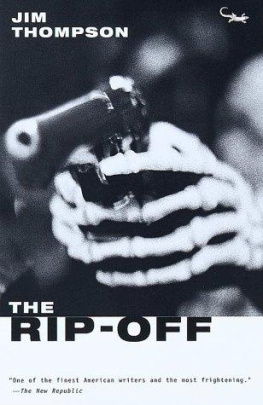Thompson - The Crackwalker
Here you can read online Thompson - The Crackwalker full text of the book (entire story) in english for free. Download pdf and epub, get meaning, cover and reviews about this ebook. City: Toronto, year: 2011, publisher: Playwrights Canada Press, genre: Detective and thriller. Description of the work, (preface) as well as reviews are available. Best literature library LitArk.com created for fans of good reading and offers a wide selection of genres:
Romance novel
Science fiction
Adventure
Detective
Science
History
Home and family
Prose
Art
Politics
Computer
Non-fiction
Religion
Business
Children
Humor
Choose a favorite category and find really read worthwhile books. Enjoy immersion in the world of imagination, feel the emotions of the characters or learn something new for yourself, make an fascinating discovery.
- Book:The Crackwalker
- Author:
- Publisher:Playwrights Canada Press
- Genre:
- Year:2011
- City:Toronto
- Rating:5 / 5
- Favourites:Add to favourites
- Your mark:
- 100
- 1
- 2
- 3
- 4
- 5
The Crackwalker: summary, description and annotation
We offer to read an annotation, description, summary or preface (depends on what the author of the book "The Crackwalker" wrote himself). If you haven't found the necessary information about the book — write in the comments, we will try to find it.
The Crackwalker — read online for free the complete book (whole text) full work
Below is the text of the book, divided by pages. System saving the place of the last page read, allows you to conveniently read the book "The Crackwalker" online for free, without having to search again every time where you left off. Put a bookmark, and you can go to the page where you finished reading at any time.
Font size:
Interval:
Bookmark:

Body & Soul
Capture Me
Enoch Arden in the Hope of Shelter
Habitat
Lion in the Streets
Palace of the End
Perfect Pie
Sled
Such Creatures
White Biting Dog
The Crackwalker Copyright 1980 Judith Thompson
Playwrights Canada Press:
The Canadian Drama Publisher
215 Spadina Ave., Suite 230, Toronto, ON, Canada M5T 2C7
phone 416.703.0013, fax 416.408.3402
No part of this book, covered by the copyright herein, may be reproduced or used in any form or by any meansgraphic, electronic, or mechanicalwithout the prior written permission of the publisher, except for excerpts in a review or by a licence from:
Access Copyright
1 Yonge St., Suite 800, Toronto, ON M5E 1E5
phone 416.868.1620
For professional or amateur production rights, please contact:
Great North Artists Management
350 Dupont Street
Toronto, ON M5R 1V9
phone 416.925.2051
Cover painting Down by the Lido by Helen Healy, photographed by Steve McKinley
Cover design by Blake Sproule
Cataloguing data available from Library and Archives Canada.
ISBN 978-0-88754-937-3
Also available in print and PDF formats.




Playwrights Canada Press acknowledges the financial support of the Government of Canada through the Canada Book Fund and the Canada Council for the Arts, and of the Province of Ontario through the Ontario Arts Council and the Ontario Media Development Corporation for our publishing activities.
This play is dedicated to the memory of my father.
In April 1979, in Montreal, in my third year at the National Theatre School, I found myself alone on a spring Sunday. Everybody was away or busy, and being twenty-four years old, I was feeling quite desperate.
And so I began The Crackwalker. I pulled out my roommates old typewriter, and just began tapping away.
I didnt really know I was writing a play, but knew I had a wonderful voicethe voice of Theresa, remembered from recent experiences on the streets of Kingston. As I wrote, I decided I would give Teresa a friend, Sandy, loosely basing her on a waitress I had worked with at Nikos deli in Kingston, before I got fired for almost hilarious incompetence. She was rail thin, and often arrived with bruises, but she was a crackerjack waitress. I was healthy and plump, and the worst waitress ever. I didnt even understand what the bruises meant, but they haunted me, and that glimpse into another world became the character of Sandy. As I wrote, I felt like I was a child playing with dolls; the two females needed boyfriends, I thought, so I brought in Alan and Joe. And the characters just spilled out onto the page, virtually creating themselves. When I think about it, I had been given full permission to let my characters take over me by the late Pierre LeFevre, the most brilliant and inspiring theatre teacher I have ever hadhe encouraged a kind of channelling with the masks, or a surrender of the public-constructed self to the character that emerged from the mask, and I found myself doing this as I wrote. As the play took shape I was quite surprised by what came out, especially at the climaxI had not planned to write about the death of a baby, but it was as if that story, which was true, insisted upon being told. The summer before, I had lucked into a job with the Ministry of Community and Social Services, teaching life skills to the permanently unemployable of Kingston. Mainly, I taught a motley crew of enchanting hard-luck characters that underwear went in the drawer, not the freezer, and that Coke and chips was not a healthy dinner, and that it was not cool to pull a knife on someone because they took a drag off your cigarette. Also, I tried to teach reading and writing. And grocery shopping and budgeting. Theresa, the character I created in The Crackwalker, was loosely based on a Theresa who was my most delightful client that summerI had the privilege of teaching her reading and writing and just hanging out with her, going to Zal Yanovskys first caf and drinking exotic drinks like mango juice, crazy for Kingston at the time.
One morning, about halfway through the summer, I sat down in my chair in the ministry office to begin my day. I had just had my first drink of coffee when the phone rang: it was Bonnie, a client, telling me that her husband had just killed their baby. I think I went into a kind of shock, unable to process the enormity of what had happened. I sleepwalked through the next few days, and within a couple of weeks I put the terrible events aside. Nine months later, I found myself writing that scene in the playa scene so horrible that to this day I find it difficult to watch the play. In the first draft, the killing of the baby took place on the stage. In the subsequent editions, I revised the stage directions so that they instructed the actor to be OFFSTAGE when this happened, so that we can hear him talking but not see him with the baby. Somehow, after the fifth or sixth edition, this was lostmaybe because I am the most slipshod editor of my own work imaginable. Now, in this new edition, the killing is where it must be, offstage. When I became a mother it became clear to me that to see Alan strangle his baby would be unholy; nobody should see such a thing. We know that it happens, but to actually see it offends so deeply, so profoundly, that the viewer may never recover. It is enough to know that it happens, to hear that it has happened; the viewer can begin to absorb what has happened, and in the days following the performance perhaps ask themselves, how we, as the privileged class in our society, are implicated. How does this happen while we are in charge? How does this happen on our watch? This is the unimaginable happening, like the suicide of a young person. This scene must forever be offstage, and any director who goes against my wishes and puts the scene onstage, is, as far as Im concerned, cursed. All this being said, I would never consider taking it out of the play because it is a true story, a tragedy that must be bellowed out to the world.
The first production of The Crackwalker, directed by the late Clarke Rogers, was in the beautiful back space at Theatre Passe Muraille. The rehearsals were fraught and very stressful, as Clarke, may he rest in peace, and I fought constantly, but I was generally thrilled with the actorsI loved how they were able to ride that line between humour and darkness so effectively. This play should have the audience laughing as much as crying, or it isnt working. The community was most generous and supportive in their response to the play, so much so that I was confident that the critics were going to give us raves. I remember cycling in the pouring rain with my boyfriend Gregor Campbell, now my husband, to buy newspapers. I remember standing in the corner store and reading a dreadful pan of my first play. It was devastating. Only one critic, the late Gordon Vogt, also from Kingston, loved this play, and understood it. I survived this battering because to my great surprise Maurice Podbrey, the artistic director of Centaur Theatre decided to program it, at great risk, in his season. It was then that the great reviews began, and the Canadian community took notice. It really was a thrilling time, even watching as the audience left in droves, counted on an electronic clicker by an usher, saying things like Call the chauffeur, George, were leaving. Some of these audience members were landlords who owned the kind of slums that the characters in
Font size:
Interval:
Bookmark:
Similar books «The Crackwalker»
Look at similar books to The Crackwalker. We have selected literature similar in name and meaning in the hope of providing readers with more options to find new, interesting, not yet read works.
Discussion, reviews of the book The Crackwalker and just readers' own opinions. Leave your comments, write what you think about the work, its meaning or the main characters. Specify what exactly you liked and what you didn't like, and why you think so.

